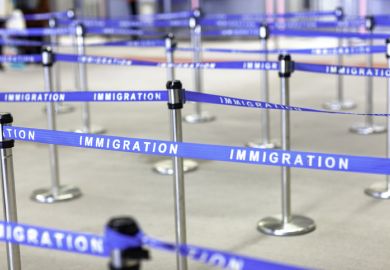Readers addicted to travellers' tales will recognise in James Attlee the curious case of a would-be travel writer who decided to stay at home. Most of his travelling seems to be the daily commute to London. The mysterious East he writes about is the orient of East Oxford, where he lives, and the "pilgrimage" he claims to be making is a short trip up the Cowley Road.
The Cowley Road as he initially presents it sounds an interesting place. Its businesses "seem to represent every nation on earth. Among them are Jamaican, Bangladeshi, Indian, Polish, Kurdish, Chinese, French, Italian, Thai, Japanese and African restaurants; sari shops, cafes, fast-food outlets, electronics stores, a florist, a Ghanaian fishmonger, pubs, bars, three live-music venues, tattoo parlours, betting shops, a Russian supermarket, a community centre, a publisher, the headquarters of an international non-governmental organisation, musical instrument vendors, butchers (halal and otherwise), three cycle shops, two video-rental stores, post offices, two mosques, three churches, a Chinese herbalist, a pawn shop, a police station, two record shops, two centres of alternative medicine, a 24-hour Tesco, an independent cinema, call centres, three sex shops, grocers, letting agencies, a bingo hall and a lap-dancing establishment that plies its trade on Sundays."
The picture Attlee paints of this cosmopolitan street is not, however, an attractive one. Alcohol features prominently (a ghastly pub, drunken students, a churchyard full of winos and drug addicts), as do an unsympathetic local council and a pervasive sense of displacement. Even the next-door neighbours give up and go back to Kashmir.
Although Attlee makes a great deal of the "pilgrimage" metaphor, it becomes clear that he does not really believe in it. It is a literary conceit that serves to tie together what would otherwise be a book without structure, falling between the two stools of cameo journalism and local history, too earnest for the first and too disorganised for the second. For the past, he has rummaged in parish records and libraries. For the present, he has tramped up and down the Cowley Road, tape-recorder and notebook at the ready. But when the locals address us through his pages, they deliver carefully edited transcripts from the tapes. Attlee has no ear for dialogue or the sound of authentic speech.
Interviewing the resident artist funded by a local body "to lead public art initiatives on Cowley Road" prompts Attlee to reflect: "How observed this road is now, I couldn't help thinking. Its inhabitants go about their business shadowed by community artists and local politicians, like Galapagos tortoises lumbering along the beach trailed by Victorian scientists, while a lone author lurks in the shadow of the palm trees." But Victorian scientists were reasonably accurate observers, whereas the lone author of the advance copy I read could not make up his mind about the spelling of Blackbird Leys, and had even invented a non-existent Oxford college, "St Edward's Hall".
The Mecca of the pilgrimage turns out to be a visit to the BMC plant, where cars are assembled at great speed by uncannily accurate robots. In view of Attlee's penchant for literary allusions, one suspects this is a metaphor of some kind. The book's odd title is explained - not convincingly - as borrowed from a medieval term for maps "that describe specific areas in detail, but that do not provide a clarifying overview of how these places are related to each other". I could not find it in any work of reference.
Roy Harris is emeritus professor of general linguistics, Oxford University.
Isolarion: A Different Oxford Journey
Author - James Attlee
Publisher - University of Chicago Press
Pages - 8
Price - £12.00
ISBN - 0 226 03093 8



